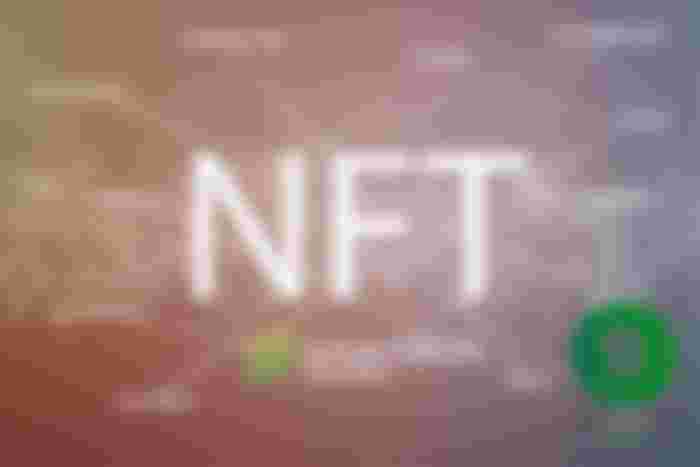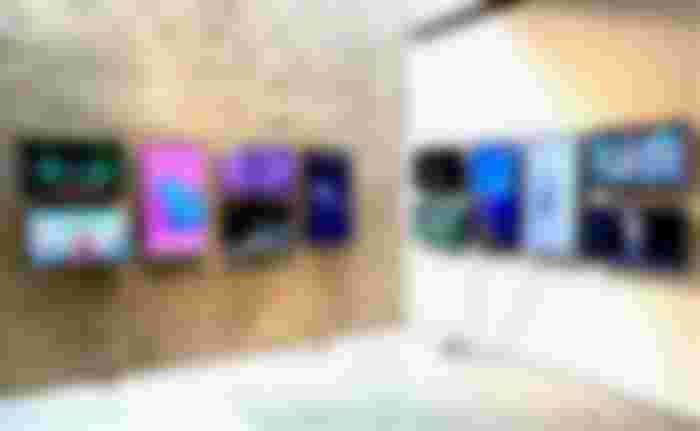
For most in crypto NFTs are just an investment. Perhaps a short term one for some, thinking this could be easy money. Maybe the market is too speculative, but the foundations are growing stronger day by day.
Nobody can ignore cryptocurrencies these days. The different branches that have formed are scaling crypto into a sizeable industry and justifiably it deserves a two trillion dollar total market cap, today.
DeFi, NFTs, and the various businesses and initiatives running within the Cryptoverse can’t be ignored today as in previous years.
The first time I discovered NFTs was with CryptoKitties, I tried researching, but realized that besides the fact that Ethereum’s network was broken, maybe NFTs were just a phase that will pass soon. This was in 2017. I collected some and still hold about 50 NFTs in various ETH wallets. Some have a high price and can grow a lot, but as usual too many were later abandoned and lost all demand.
Cryptokitties was the first NFT collectibles that was hyped just because many Ethereum whales tried to make a point about this technology. NFTs were once again pushed into the limelight in late 2020. Whales massively bought, exchanged NFTs between them and created artificial volumes in marketplaces. This was noticed and reported by independent crypto writers, but eventually, some top artists like Beeple were convinced to use the NFT format, and then NFTs reached Christie’s auction house where they sold for millions.

Again, there was a point to be made. Digital NFTs as an exhibition may or may not become widely accepted by the public. Perhaps an NFT museum will become reality in a modern city and will attract visitors. Perhaps there won’t be much interest in this form of art exhibition and it will fade away as a trend.
We proceed with the fields where NFTs have a strong use case to offer.

Gaming

Gaming is a top priority for the integration of NFT technology.
Ask the PUBG or MMORPG gamers how much convenient it would be to trade items, skins, and in-game credits, under an NFT format, that would give absolute control to the gamer.
This is the future of gaming.
It is an inevitable model that will turn the previous controllable design obsolete. We already see how card games like Splinderlands and Axies transform gaming. It is better for the top producers as Blizzard, Electronic Arts, and the rest to seriously integrate the NFT model in all their games.
NFTs will enhance the gaming industry and increase profitability.
I can’t stress enough how much the gaming world will evolve when the top gaming corporations relinquish control of in-game assets to the users. It will be a gaming revolution.
Decentraland

Decentraland is a good example of how NFTs can work in gaming or in the Metaverse, but this platform still has many disadvantages so far:
Lack of gamification. It is mostly a 3D walking simulator with limited interactions.
The high fees of the Ethereum blockchain hinder mass adoption. I would recommend Decentraland devs to explore smartBCH capabilities ASAP.
It is just a virtual world, with cute graphics, but rendering is slow. It needs fine-tuning, and this demands a budget increase.
I find Decentraland to be crude but also able to herald us in a new era of gaming, with the user at the center and decentralized economies for each platform.

Digital Art

Digital art has been exploding in demand by collectors recently.
The value of art is always in question. Prices change as demand changes. NFTs have the unique ability to provide verifiable ownership of digital art pieces. It is not just a jpeg, but a tokenized upgrade, verifiable through a decentralized and secure blockchain network.
NFTs exhibitions are possible in real life and museums. It requires a display screen, of course. Art comes in a variety of forms, though. It is not just painting or sculptures. Painting can be digital and sculptures will also find a digitized version in the future with the advance of holograms.
Music NFTs
There is also a huge use case in music. The current audio files, like mp3s, will be produced and released in NFTs. Rock band Kings of Leon have recently released an NFT version of their latest album (Rolling Stone Magazine).

Real Estate

Any trade of real estate property has become a difficult procedure. Often buyers and sellers will agree, but the sale will not go through because of the difficulties in regulations.
The government has become a burden in real estate business and created a monstrous bureaucracy that can delay any real estate sale for many months.
NFTs can integrate everything required, cut bureaucracy by 99%, and reduce the cost, allowing the market to flourish.
Real Estate is a top investment, but it is the governments that have turned it into an unfortunate event for most participants.
Meanwhile, NFTs, with the smart contract capabilities, will execute instantly all contract rules, without intervention, and without delays by any parties involved.
A property sale will take just seconds using NFTs instead of months.
There is also this field of real estate called fractional ownership. A building, an estate, an apartment, or even land, a lot often, can be owned by more than just one person.
Eventually, in the future, NFTs will help anyone buy fractions of a property with ease and help this market grow into an enormous size.
Threats in NFT adoption in real-estate
What may hinder NFTs in real estate, is again the governments.
This technology offers an efficient approach to real estate, but governments are hindering ans stalling progress in this field due to an enormous bureaucracy. There will be less centralization, but not complete decentralization since there are plenty of requirements and standards that have to be met.

In Conclusion

I can say with 99.99% certainty that NFTs will become a technology that will affect our daily lives.
Bitcoin Cash has expanded beyond the scope of digital cash, and with the SmartBCH sidechain capabilities becomes a network that enters the age of digitization.
It is not just about cash anymore, this is about decentralized finance and tokenization of assets. The modern economy is already moving to complete digitization.
There are more use cases that NFTs could apply and I didn’t mention them in this article. Ticketing is a hot topic for NFTs with developers already applying protocols that improve this field.
Cryptocurrencies offer a decentralized vision, while governments are still planning a regulated, centralized, and controllable version.
Cryptocurrencies have offered solutions to reduce costs and eliminate corruption produced by excessive bureaucracy.
When governments discuss digitization, they should explore decentralized smart contracts instead of adding new useless organizations. It is taxpayers’ money wasted on additional and fake digitization that has only produced even more bureaucracy than previously.
DAOs will also become prominent shortly since they offer complete automatization of otherwise pointless procedures. It is a future that eventually the public will decide if it prefers less bureaucracy, taxes, government, or more with centralized digitization.

Images:
Lead Image from: Flickr (Creative Commons Licence)
Poolside Puffers: https://puffers.cash/your-pool
Hurry up:

Follow me on: ● ReadCash ● NoiseCash ● Medium ● Hive ● Steemit ●Vocal ● Minds ● Twitter ● LinkedIn ●Reddit ● email

Don't forget to Subscribe and Like if you enjoyed this article!














I've heard of NFTs being very useful for ticketing and perhaps a game-changer for the property market. It's true that dealing with the government often just complicates matters and using NFTs as a means of transferring land ownership might solve so many unnecessary bureaucratic steps, but we'll need to see a better means of safety protocol on the marketplace and mass adoption of cryptocurrency before it can become a reality, hopefully, it will be in the near future. A very nice and insightful work, Pantera.